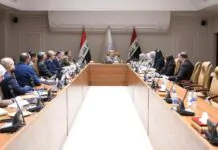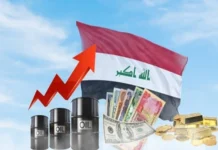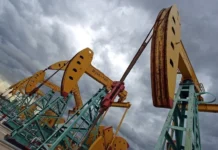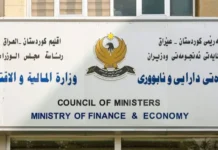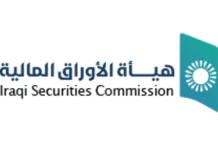Tishwash: 140 trillion dinars enter the Iraqi treasury in one year, 91% of which comes from oil.
The Iraqi Ministry of Finance revealed on Saturday that the revenues in the 2024 federal budget exceeded 140 trillion dinars, confirming that oil contributed 91% of those revenues.
Shafaq News Agency reviewed the data and tables issued by the Ministry of Finance in May for the previous fiscal year’s accounts, which showed that oil remains the primary source of revenue for Iraq’s general budget, accounting for 91% of the total. This indicates that the rentier economy remains the foundation of the budget structure.
The tables indicate that total revenues in 2024 amounted to 140 trillion, 774 billion, 106 million, 157 thousand, and 464 dinars, while total expenditures amounted to 125 trillion, 214 billion, 440 million, 53 thousand, and 991 dinars.
According to the tables, oil revenues amounted to 127 trillion, 536 billion, 400 million, and 812 thousand dinars, representing 91% of the general budget, while non-oil revenues amounted to 13 trillion, 237 billion, 705 million, and 728 thousand dinars.
In this regard, economic expert Mohammed al-Hasani told Shafaq News Agency, “Iraq’s reliance on oil for its public revenues indicates that the country is still suffering under the burden of a rentier economy, disguised unemployment, and other economic problems that constitute an obstacle to any progress.”
He added, “Iraq needs major economic reforms focused on diversifying the economy, improving spending efficiency, and combating financial waste to ensure a sustainable economic future.”
In March 2021, the Prime Minister’s financial advisor, Mazhar Mohammed Salih, told Shafaq News Agency that the reasons for the economy remaining rentier are due to the wars and economic blockade imposed over the past decades, as well as the political conflicts Iraq is currently witnessing, which have led to the dispersion of economic resources.
The Iraqi state’s continued reliance on oil as the sole source of its public budget exposes the country to the risk of global crises linked to oil markets. This forces it to cover its deficit through external or domestic borrowing each time. This indicates a weakness in the management of public funds and an inability to find alternative financing solutions. link
************
Tishwash: The US State Department intervenes in the crisis between Baghdad and Erbil.
The US State Department considered the recent agreements concluded by the Kurdistan Regional Government with American companies to develop natural gas production an important step to address the chronic imbalance in Iraq’s energy sector, calling on Baghdad and Erbil to urgently coordinate to accelerate project implementation and enhance Iraq’s energy independence.
A State Department official said in a statement, “The United States believes that Iraq will be more stable and sovereign by achieving energy independence and moving away from the harmful influence of Iran.”
He added, “The agreements recently signed by Kurdistan Regional Government Prime Minister Masrour Barzani with American companies to expand natural gas production in Iraqi Kurdistan support this goal,” noting that “these projects, whether in the region or the rest of the country, are in the interest of all Iraqis, especially in light of the ongoing electricity crisis.”
The US official continued, “We encourage Baghdad and Erbil to work together to commence gas production as soon as possible.” link
************
Tishwash: Economic Council: Broad interest from regional and international companies to participate in the Iraq Investment Forum.
Iraqi Economic Council Chairman Ibrahim Al-Masoudi Al-Baghdadi affirmed on Friday that Iraq has become a destination for investment in the Middle East, thanks to the government’s extensive support for investment and investors. Addressing the Iraq Investment Forum, he revealed widespread interest from regional and international companies to participate, noting that more than 250 investment opportunities will be showcased.
Al-Baghdadi told the Iraqi News Agency (INA): “This explains the change and geopolitical orientation towards Iraq, which has today become the investment destination in the Middle East,” noting that “just a year ago, we were facing great difficulty in inviting investors to attend conferences or forums inside Iraq, but today there is a widespread desire from important companies and countries from the Gulf, the Middle East, Europe, America and Arab countries to participate in the Iraq Investment Forum scheduled to be held on June 14 and 15.”
He added, “There is growing demand due to the abundance of quality and profitable opportunities, especially since Iraq has lived through long years of war, siege, and terrorism, creating an urgent need for all types of projects. Today, we are beginning to see the results of the hard work and efforts of the past years.”
He explained, “Today’s investor is looking for an unsaturated market. For example, building a five-star hotel in Dubai means competing with 650 hotels of the same category, while Iraq currently needs approximately 60 hotels, according to the Minister of Culture, Tourism, and Antiquities. This provides a golden opportunity for any investor to operate in an environment virtually devoid of competition.”
Al-Baghdadi pointed out that “Iraq is the largest market in the region, and its environment has become attractive to investments,” predicting that “the next ten to twenty years will witness Iraqi superiority in investment competition with countries in the region.”
Regarding the Iraq Investment Forum, Al-Baghdadi explained that “the forum will showcase more than 250 investment opportunities, including 150 direct opportunities, 31 of which are in the electricity sector, and more than 15 in the oil sector, in addition to dozens of opportunities in industry, agriculture, transportation, information technology, industrial cities, and free zones.” He noted that “the Ministry of Industry will showcase 97 opportunities within the partnership mechanism with its companies.”
He explained that “these projects will contribute to creating thousands of job opportunities, and may reach hundreds of thousands in the coming years, as part of the National Investment Commission’s plans link

